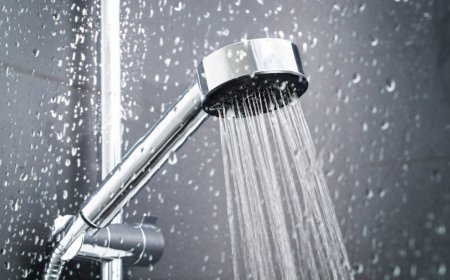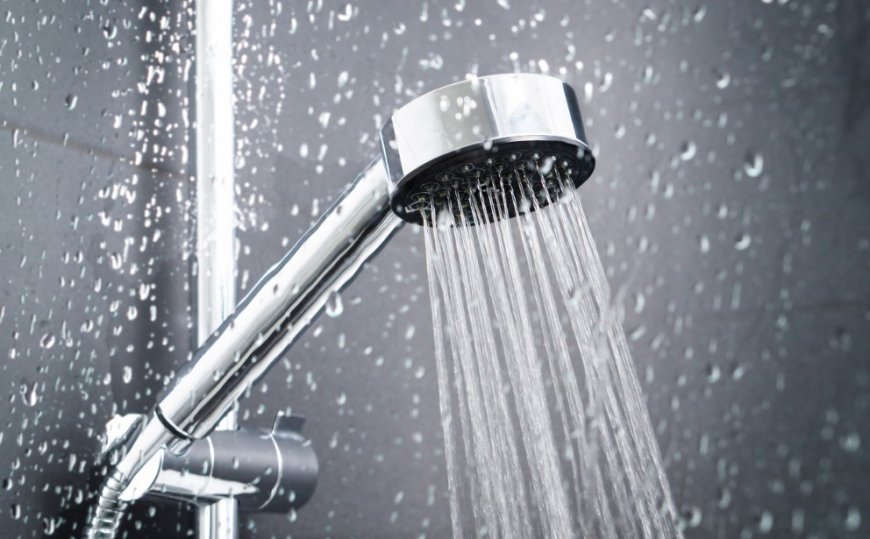How Bathing Too Often Can Harm Your Health
Bathing is one of those daily rituals we rarely question. For many people, stepping into a warm shower feels like the ultimate reset — a moment of calm that washes away stress, sweat, and the weight of the day. We grow up believing that the more we bathe, the cleaner and healthier we become. But modern dermatology tells a different story: when it comes to bathing, more is not always better. In fact, showering too often can quietly harm your skin, hair, and even your overall well-being, especially as you get older.
1.
While good hygiene is essential, the idea that we need multiple showers a day is largely a cultural habit
rather than a medical necessity. Your body is equipped with natural oils, protective bacteria, and built-in systems that keep your skin balanced — and over-washing can disrupt all of this. Hot water, strong soaps, and frequent scrubbing may give you a temporary feeling of freshness, but beneath the surface, they can weaken the skin’s barrier, trigger irritation, and leave the body more vulnerable than before.
This becomes even more important for older adults or anyone dealing with dry or sensitive skin. As the body ages, it naturally loses moisture more quickly, the skin barrier thins, and temperature regulation becomes harder. Too much bathing can accelerate these changes, turning a healthy routine into a surprising source of discomfort.
How Bathing Too Often Can Harm Your Health
Bathing is one of life’s simple pleasures. A warm shower can refresh your body, ease tension, and wash away a long day’s fatigue. But while cleanliness is essential, overdoing it can actually do more harm than good especially for older adults or people with sensitive skin. Here’s why bathing too often might be affecting your health in ways you don’t realize.
1. It Strips Away Your Skin’s Natural Oils
Your skin has a thin layer of natural oils that keeps it soft, hydrated, and protected. When you bathe too frequently particularly with hot water or harsh soaps—you strip away those oils.
Over time, this can lead to:
Dry, flaky skin
Itching or irritation
Increased sensitivity and premature aging
If your skin often feels tight or itchy after showering, it may be a sign that you’re washing away too much of its natural moisture.
2. It Disrupts the Skin’s Natural Microbiome
Our skin isn’t just a barrier—it’s home to millions of beneficial bacteria that protect us from harmful germs. Frequent scrubbing and antibacterial soaps can wipe out these “good” bacteria, leaving the skin vulnerable to infections, inflammation, and eczema.
A healthy balance of skin flora helps keep your immune system strong. So, sometimes, being too clean can actually make your skin weaker.
3. It Can Affect Body Temperature Regulation
Older adults often have a harder time regulating body temperature. Bathing too often especially in very hot or very cold water can cause sudden temperature shifts that make you dizzy or lightheaded.
Frequent hot showers may also dilate blood vessels and lower blood pressure, leading to fatigue or faintness. Cold showers, on the other hand, can shock the body if you’re not used to them.
To stay safe, keep your water warm but not steaming, and avoid long baths if you tend to feel dizzy afterward.
4. It Dries Out Your Scalp and Weakens Hair
Your scalp also produces natural oils that nourish and protect your hair. Washing too often can strip these oils away, leading to dryness, brittleness, and even increased hair loss.
If you notice your hair feeling coarse or breaking easily, try reducing how often you shampoo. For most people, washing hair 2–3 times a week is enough to keep it clean and healthy.
5. It May Leave You Feeling More Tired Than Refreshed
Tap the p.hoto to v.iew the full r.ecipe.

























